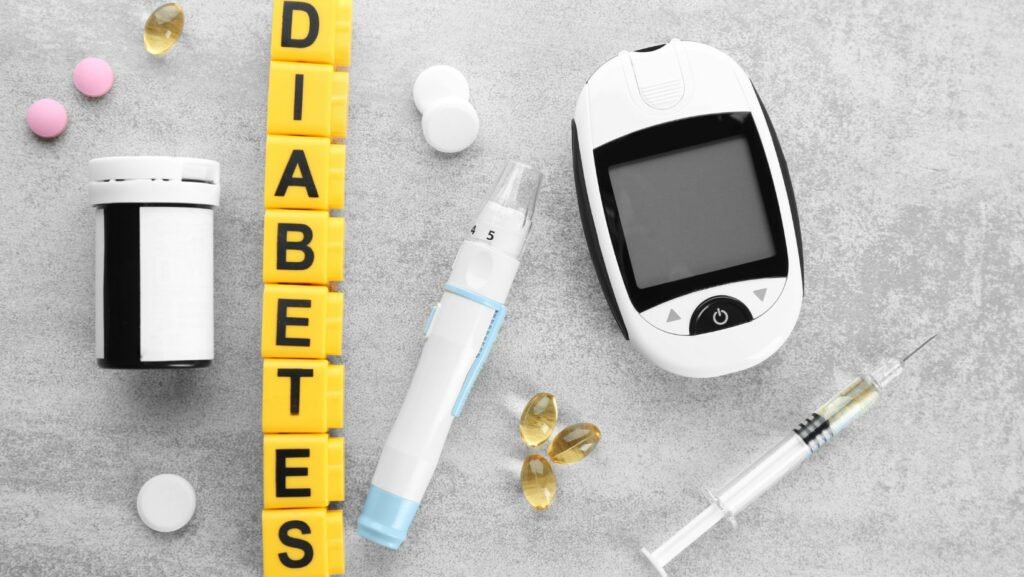
Living with diabetes requires careful management to maintain a healthy and balanced lifestyle. Whether you’ve recently been diagnosed or have been managing diabetes for a while, incorporating simple yet effective tips into your daily routine can make a significant difference. For practical strategies that empower you to take control of your diabetes, promoting overall well-being and stability, read on.
Regular Physical Activity as a Lifestyle Choice
Incorporating regular physical activity into your routine is a powerful tool in diabetes management. Engaging in exercises like walking, cycling, or swimming helps your body use insulin more efficiently, contributing to better blood sugar control. Ensuring comfort and proper circulation during physical activities is crucial for individuals managing diabetes, and that’s where diabetic socks made for men come into play. These socks offer specialized features such as seamless toe closures and non-binding tops, providing a snug yet gentle fit that minimizes the risk of irritation and pressure points.
Additionally, aim for at least 150 minutes of moderate-intensity aerobic activity per week and include strength training exercises to further enhance insulin sensitivity. Simple activities like taking the stairs or going for a brisk walk after meals can also make a positive impact.
Mindful Eating for Stable Blood Sugar
One of the cornerstones of diabetes management is adopting a mindful approach to eating. Pay attention to portion sizes, and opt for a balanced mix of carbohydrates, proteins, and healthy fats. Focus on whole foods such as fruits, vegetables, lean proteins, and whole grains to provide sustained energy and help stabilize blood sugar levels. Avoiding excessive consumption of sugary snacks and processed foods is crucial in managing diabetes effectively.
Hydration for Blood Sugar Control
Incorporate proper hydration into your mindful eating habits. Drinking water before meals can help control portion sizes and reduce the likelihood of overeating. Additionally, staying well-hydrated supports digestion and nutrient absorption, contributing to overall metabolic health.
Regular Meal Timing and Snacking
Establish a consistent schedule for meals and snacks throughout the day. Spreading your food intake evenly helps regulate blood sugar levels and prevents drastic spikes or crashes.
Include healthy snacks between meals, such as nuts, seeds, or vegetables, to maintain a steady supply of nutrients and energy throughout the day.
Consistent Monitoring with Blood Glucose Testing
Regular monitoring of blood glucose levels is a fundamental aspect of diabetes management. Establish a routine for checking your levels, and keep a record to identify patterns and trends over time. This information is invaluable in making informed decisions about your diet, exercise, and medication. Additionally, be proactive in scheduling regular check-ups with your healthcare provider to discuss your progress and make any necessary adjustments to your diabetes management plan.
Adequate Sleep and Stress Management
Prioritizing good quality sleep and managing stress are often overlooked but critical components of diabetes care. Lack of sleep and chronic stress can negatively impact blood sugar levels. Aim for 7-9 hours of quality sleep each night, and explore relaxation techniques such as deep breathing, meditation, or yoga to help manage stress. Creating a consistent sleep routine and finding effective stress-reduction strategies contribute significantly to maintaining overall health and diabetes control.
Establish a Relaxing Bedtime Routine
Develop a calming pre-sleep routine to signal to your body that it’s time to wind down. This can include activities like reading a book, taking a warm bath, or practicing gentle stretching. Avoid stimulating activities or screens before bedtime to promote a peaceful transition into sleep.
Mindfulness and Stress-Reduction Practices
Incorporate mindfulness practices into your daily routine to manage stress effectively. Mindfulness meditation, in particular, has been shown to reduce stress and improve emotional well-being. Allocate a few minutes each day to focus on your breath, engage in mindful walking, or use guided meditation apps to cultivate a sense of calm and balance amidst life’s demands.
Stay Hydrated for Overall Health
Proper hydration is often underestimated in its impact on diabetes management. Water plays a crucial role in various bodily functions, including the regulation of blood sugar levels. Make it a habit to stay well-hydrated throughout the day by drinking plenty of water.

Limit sugary beverages and opt for water, herbal teas, or infused water with slices of citrus or cucumber. Adequate hydration supports kidney function and helps flush out excess glucose, contributing to better overall health and diabetes control.
Build a Support System
Managing diabetes can sometimes feel overwhelming, and having a reliable support system is key. Surround yourself with friends, family, or a diabetes support group who understand your journey. Sharing experiences and challenges with others who have similar experiences can provide emotional support and valuable insights. Additionally, involve your loved ones in your diabetes management plan, helping them understand how they can support you in making healthy lifestyle choices.
Medication Adherence and Regular Check-ups
If your diabetes management plan includes medication, it’s crucial to adhere to your prescribed regimen. Set reminders or integrate medication into existing routines to avoid missed doses. Regularly check the expiration dates of your medications and keep an emergency supply on hand.
Beyond self-monitoring, consistent check-ups with your healthcare provider are essential. These appointments allow for adjustments to your treatment plan based on your evolving needs and help catch any potential issues before they escalate.
Educate Yourself and Stay Informed
Knowledge is a powerful tool in managing diabetes. Take the initiative to educate yourself about the condition, its complications, and the latest advancements in diabetes care. Stay informed about nutritional guidelines, emerging technologies, and lifestyle strategies that can enhance your diabetes management. Empowering yourself with knowledge enables you to make informed decisions about your health and work collaboratively with your healthcare team to optimize your diabetes care plan.
By incorporating these tips, you add valuable layers to your diabetes management strategy. Remember, diabetes management is not a one-size-fits-all endeavor, and finding what works best for you is a continual process. With dedication to these practical tips, you can navigate the complexities of diabetes with resilience, fostering a healthier and more balanced lifestyle. Always consult with your healthcare provider for personalized advice tailored to your specific needs and circumstances.












